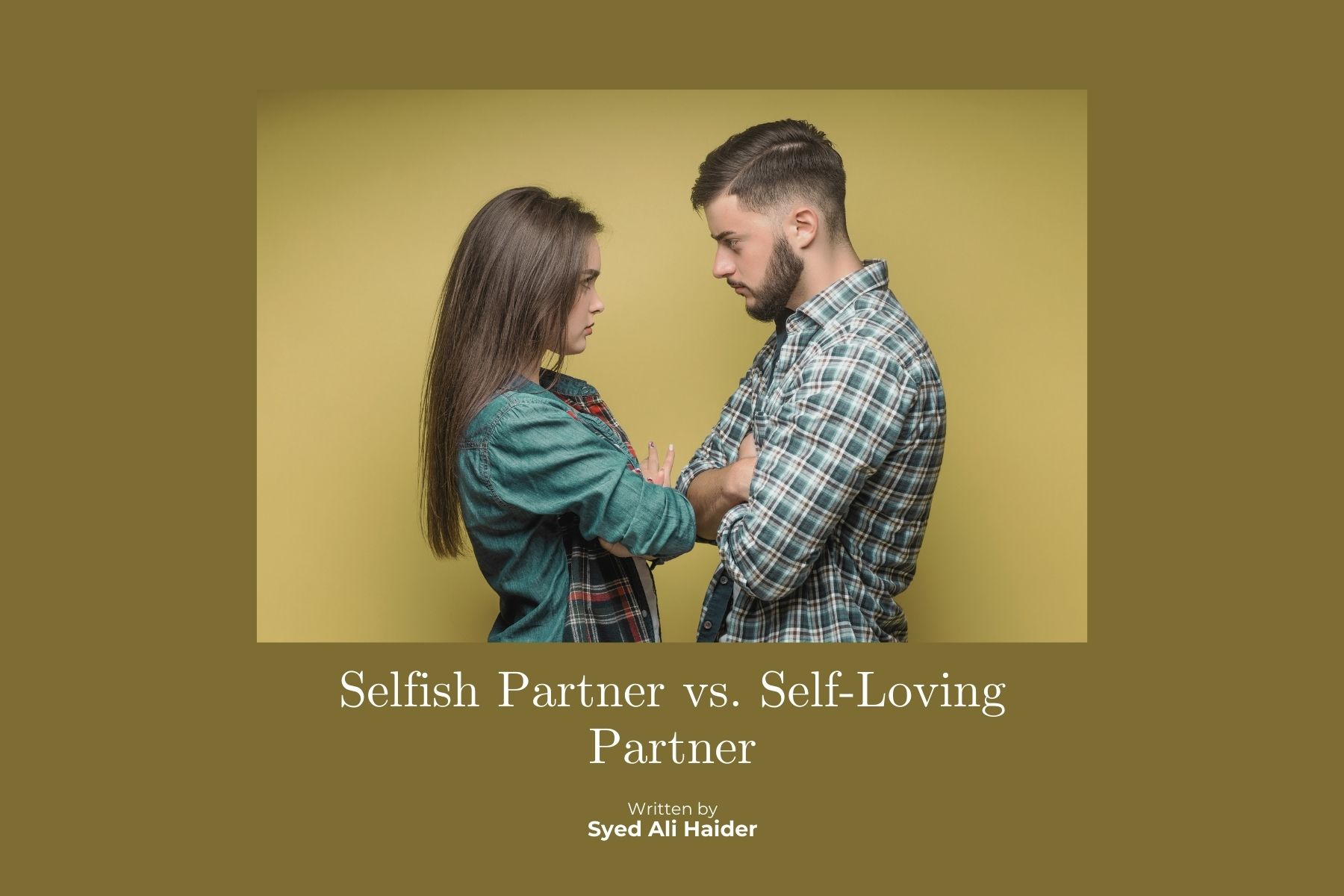Selfish Partner vs. Self-Loving Partner
Understanding the Difference
In relationships, there is often confusion between self-love and selfishness. One partner might say, “I am practicing self-love, but my partner doesn’t understand it.” However, what they are practicing may not be self-love but rather selfishness. It’s crucial to differentiate between the two because while self-love leads to growth, kindness, and deeper connections, selfishness can lead to isolation and distance in relationships.
What is Self-Love?
Self-love is the act of valuing yourself, recognizing your worth, and treating yourself with kindness and respect. It’s about nurturing your physical, emotional, and mental well-being without harming others. In a relationship, self-love allows you to:
Grow Emotionally and Spiritually: You become more patient, understanding, and empathetic.
Cultivate Gratitude: You appreciate your partner and the small moments in your relationship.
Radiate Positivity: People feel drawn to you because of your balanced and peaceful energy.
Maintain Healthy Boundaries: You know when to say yes and when to say no, ensuring mutual respect in the relationship.
Foster Deeper Connections: Self-love strengthens your bond with your partner because it eliminates neediness and promotes emotional security.
What is Selfishness?
Selfishness, on the other hand, is centered around me-first thinking. While it may initially appear similar to self-love, it’s rooted in self-centeredness rather than self-respect. In relationships, selfishness can manifest as:
Isolation: Instead of building connections, you distance yourself from others, expecting the world to revolve around you.
Control and Manipulation: A selfish partner often expects their needs to be prioritised above the relationship’s well-being.
Emotional Withholding: They may withdraw love, affection, or attention when things don’t go their way.
Temporary Satisfaction: Initially, it may seem like everything is under control, but over time, selfishness leads to emotional distance and loneliness.
Blame Game: Instead of taking responsibility, selfish individuals often blame their partners for conflicts or misunderstandings.
Key Signs of a Self-Loving Partner:
1. They respect your individuality and encourage your growth.
2. They communicate openly and honestly.
3. They practice gratitude and show appreciation.
4. They support your goals and dreams.
5. They set healthy boundaries without isolating themselves.
Key Signs of a Selfish Partner:
1. They expect constant attention and validation.
2. They dismiss your feelings and needs.
3. They use manipulation or guilt to get their way.
4. They prioritize their desires over the relationship’s health.
5. They isolate themselves or you when things don’t go their way.
Self-Love in Couples: Why It Matters
When self-love awakens within a person, it also awakens self-worth. Knowing your worth helps you choose healthier relationships, set boundaries, and communicate your needs effectively. In a couple’s dynamic:
• Self-love strengthens emotional bonds.
• It promotes mutual respect and understanding.
• It helps both partners grow individually and together.
• It reduces dependency and fosters interdependence.
Self-Love or Selfishness? — The Ultimate Question
• Ask yourself these questions to evaluate your behavior or your partner’s:
• Am I nurturing growth in my relationship, or am I creating distance?
• Do I respect my partner’s individuality, or do I expect them to revolve around me?
• Are my actions rooted in love or control?
Final Thoughts
In healthy relationships, self-love is essential—it empowers you to be kind, patient, and supportive. But when self-love turns into selfishness, it erodes the foundation of trust and intimacy. Recognize the difference, communicate openly with your partner, and aim to build a relationship where both partners can thrive emotionally and mentally.
Remember, self-love helps you grow and brings people closer to you, while selfishness isolates and distances you from those who care. Choose wisely.




